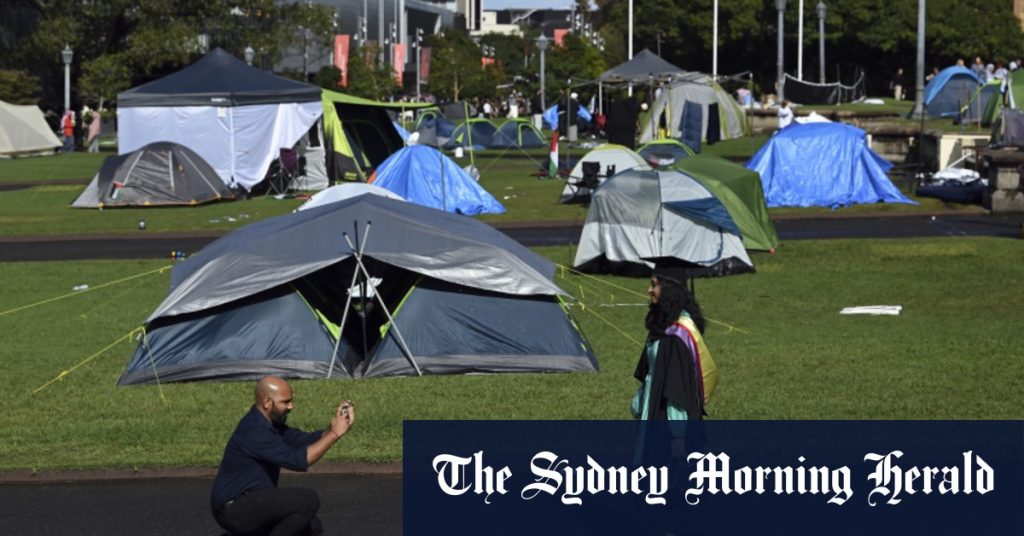Student organisers of Sydney University’s pro-Palestinian encampment have decided to reject an offer from the university to review its ties to defence companies in exchange for shutting down the sprawling camp. The encampment, which had been ongoing for five weeks, received an offer from the university to review its investment portfolio related to defence and security industries prior to a senate divestment discussion. This process mirrored the university’s decision to divest from other controversial areas such as fossil fuels, tobacco, modern slavery, and cluster munitions. Additionally, the university planned to establish a working group consisting of members nominated by the camp to undertake an independent review of research partnerships, including those with defence companies.
Despite the comprehensive nature of the university’s offer, the student organisers of the camp voted unanimously to reject it and continue their protest. Vice Chancellor Mark Scott emphasized the need for respectful engagement and dialogue between the university and the protesters, acknowledging the complexity of the negotiation process. This decision highlights the determination of the student organisers to persist in their fight for Palestinian rights, indicating a commitment to their cause which transcends any potential benefits that the university’s offer may have provided.
The rejection of the university’s offer showcases the dedication of the student organisers to the pro-Palestinian cause and their refusal to compromise on their principles. By voting to continue the camp and reject the deal, the students are demonstrating a willingness to persevere in their activism despite the potential benefits that shutting down the camp could have brought. This rejection also serves as a signal to the university and the broader community that the students are committed to advocating for Palestinian rights and are not swayed by offers that may aim to silence their voices.
The decision to reject the university’s offer underscores the importance of maintaining a strong stance in the face of challenges and potential concessions. By refusing to compromise on their principles, the student organisers are sending a powerful message about the value of perseverance and dedication to a cause. The rejection of the deal also highlights the strength of the students’ commitment to fighting for Palestinian rights and their determination to continue their activism despite the difficulties and pressures they may face.
The rejection of the offer further solidifies the student organisers’ resolve to continue their protest and advocacy efforts, indicating a deep-rooted commitment to the pro-Palestinian cause. By choosing to reject the deal and maintain the camp, the students are demonstrating their unwavering dedication to their beliefs and their willingness to persist in the face of challenges. This decision serves as a testament to the strength of their convictions and their readiness to continue the fight for Palestinian rights, regardless of external pressures or potential incentives to disband.
In conclusion, the rejection of Sydney University’s offer by the student organisers of the pro-Palestinian encampment reinforces their commitment to advocacy for Palestinian rights and their determination to continue their protest. By voting unanimously to reject the deal, the students have demonstrated their unwavering dedication to their cause and their readiness to endure challenges in their pursuit of justice. This decision symbolizes the resilience and strength of the student organisers in the face of opposition, highlighting the importance of unwavering commitment and perseverance in activism.


